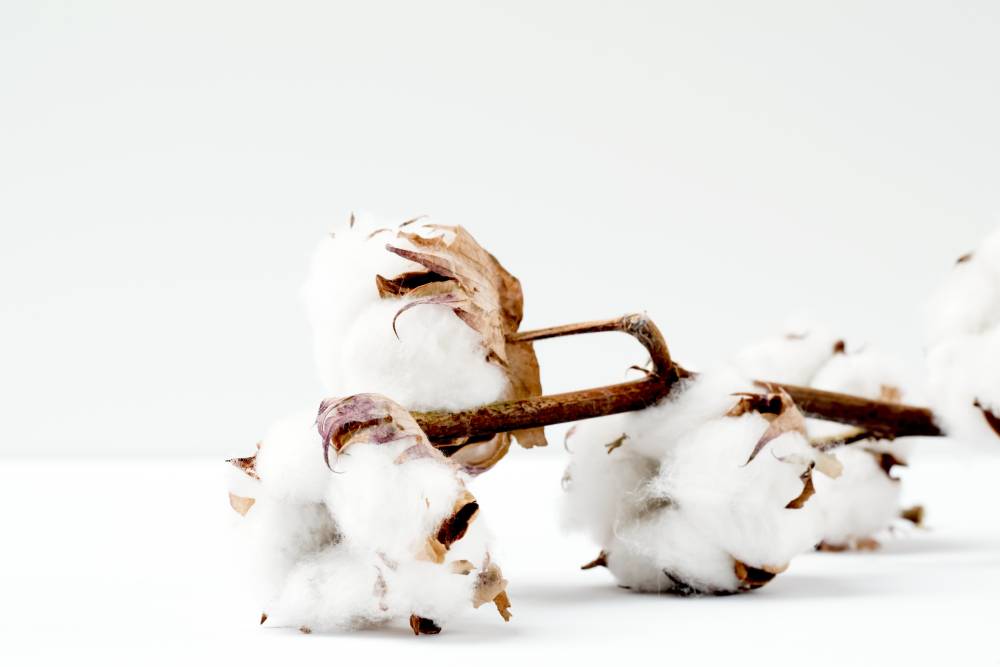
Due to the COVID-19 crisis, the interest in sustainability is rising among conscious consumers, especially in the fashion world. People choose organic cotton alternatives as they develop a new awareness of sustainable fashion. But is it that simple?
In some cases, organic cotton production is bad, requiring more resources, more time, labor, land, water, and energy. It's more expensive to produce and sell and lacks subsidies and protection. Organic farming isn't as efficient and provides a lower yield and revenue.
The COVID-19 crisis has shaken down the global fashion industry. In April and May 2020 alone, the industry had to cope with 75 to 85 percent lower sales, according to an analysis by the Boston Consulting Group (BCG).
The fast-moving global fashion industry is forced to rethink the fast-fashion business model in favor of slower fashion cycles and more sustainability-focused fashion companies.
However, it's simply not possible to keep up with the growing textile demand of the Earth's population with organic cotton alone. To switch to organic farming, many costly certifications are necessary. Field conversion to organic and subsequent certification processes are very slow.
Among end consumers, many misunderstandings exist between organic cotton and its social and environmental impacts. Some natural pesticides used in organic farming are very harmful.
Is organic cotton truly an opportunity for more sustainability in the fashion industry?
Panaprium is independent and reader supported. If you buy something through our link, we may earn a commission. If you can, please support us on a monthly basis. It takes less than a minute to set up, and you will be making a big impact every single month. Thank you!
Organic doesn't mean sustainable, ethical, and fair

Many fashion brands and retailers are greenwashing. They make misleading claims about the environmental benefits of their products, especially when it comes to organic cotton.
They want to convey a supposedly environmentally friendly image to appeal to conscious consumers. They claim that their clothing lines have a low environmental impact when in reality their activities remain highly polluting.
"The term organic isn't protected in the textile market."
- Andrea Sibylle Ebinger, Hessnatur Chief Executive Officer
Without proper certification standards from independent third-party organizations, organic simply means non-GMO (genetically modified) and no man-made chemicals (insecticides, pesticides, fertilizers, bleaches, and dyes).
Cotton simply labeled organic by clothing brands doesn't consider the resources needed during production or the labor conditions of farmers and garment factory workers.
"There is no such thing as a sustainable garment, and everything that means organic cotton only means that no pesticides are used. It says nothing about the huge amounts of water and energy that are needed for the cultivation of cotton and its processing into textiles, not to mention the effects that this has on people, who work in the supply chain."
- Alec Leach, sustainability and fashion writer, editor, and consultant
The demand for organic cotton is growing within the fashion industry. More consumers are asking for eco-friendly products made from renewable resources.
Natural organic cotton seems like a better option for many conscious consumers. Many people think of shopping for organic products when it comes to food and beauty. They can also directly see an effect on their health, being safer for the body and the environment.
Organic makes a lot of sense in these cases but does it for the apparel and textile industry as well? Does choosing to buy organic cotton reduce the environmental impact of fashion? And what about fair working conditions in the supply chains?
Sustainability and ethical production methods should be linked but aren't in many cases. For many large apparel brands and retailers, sustainable fashion doesn't mean fair working conditions.
Sustainability has social, environmental, and economic aspects. But many people consider ethical fashion different from sustainable fashion.
Ethical fashion focuses more on improving the social aspects of the fashion industry, to sustain a more socially acceptable way of producing garments.
Whereas sustainable fashion only means solving environmental issues for many organizations and businesses. Many consumers don't understand what sustainability means. Everyone has a different definition.
A fashion collection can be labeled sustainable by using organic cotton but it doesn't say much at all about its impacts on the planet, people, and animals.
Child labor and modern slavery cases are still being reported. Many fashion brands and retailers are still using sweatshop-like conditions in factories to produce their clothes cheaply, even those that claim to have eco-friendly clothing lines made of organic cotton.
Organic cotton is expensive

Fast fashion is cheap because apparel companies save money by lower labor costs and their environmental responsibilities. Truly sustainable fashion is overall more expensive than fast fashion.
As large fashion corporations keep exploiting people and the environment, prices of disposable and cheaply-made clothes stay low.
Transparent, accountable, and responsible production costs more money but offer a better future for employees and their families.
Prices of organic cotton tend to be higher than conventional cotton. Organic farming is costly, requires more resources, time, and labor. It isn't as efficient and provides a lower yield per acre.
The general demand for sustainable fashion needs to rise for prices to drop. Many conscious consumers don't have access to eco-friendly and ethical choices for their clothes.
Governments and world leaders also have an important role to play. Organic cotton needs state or government subsidies and protection to matter on a global scale.
It's possible to fix fashion through government policies and legislation. Many reports from various sustainable fashion organizations already make key recommendations that governments take into consideration.
"It is not enough that companies lower prices of sustainable products, we need a political framework that ensures that companies that do not produce sustainably and socially fulfill their duty of care."
- Nina Lorenzen, fair and sustainable fashion writer, co-founder of nXm
The benefits of organic cotton are multiple. It's free of harmful chemicals, clean, soft, and breathable. There are also many drawbacks. It remains quite expensive and inaccessible to most consumers. Its production costs are higher and its availability limited.
Organic cotton has a relatively low demand compared to conventional cotton. Only 107,980 tons of organic cotton were produced in 2016, according to the Textile Exchange.
The Food and Agriculture Organization of the United Nations (FAO) estimates that 30.3 million tons of cotton are produced each year globally.
Even though about 80% of all organic cotton is grown with water form rainfalls without additional irrigation, which reduces pressure on local water sources, it's impossible to tell how much water was used to produce a cotton garment and if irrigation water was necessary or not.
The geographic location and country of origin have a huge impact on cotton quality. Cotton farming methods vary heavily between farms and continents. How cotton is produced plays a major role in its sustainability.
The main environmental concern for organic cotton is water usage related to irrigation. In countries such as India, water is a rare resource because of scarcity.
The most water-efficient option is rain-fed cotton, where cotton gets water from rainfall. But there is no way to know if the cotton we buy required additional water. Organic and natural isn't always better. Many people consider maximizing product per amount of inputs as a better solution to minimize impacts.
Organic cotton can consume more resources, land, water, and energy in some cases. The Textile Exchange estimates, however, that organic cotton farming can potentially save 218 billion liters of water and 92.5 million kg of carbon dioxide.
When looking at the environmental impact, organic cotton can be better than conventional cotton. Organic cotton farming is less likely to contribute to acidification, eutrophication, and global warming.
Buying organic often means preserving soil fertility and biodiversity. But it's not that simple. Organic cotton is better in some areas compared to regular cotton, but worse in others.
Was this article helpful to you? Please tell us what you liked or didn't like in the comments below.
About the Author: Alex Assoune
What We're Up Against
Multinational corporations overproducing cheap products in the poorest countries.
Huge factories with sweatshop-like conditions underpaying workers.
Media conglomerates promoting unethical, unsustainable products.
Bad actors encouraging overconsumption through oblivious behavior.
- - - -
Thankfully, we've got our supporters, including you.
Panaprium is funded by readers like you who want to join us in our mission to make the world entirely sustainable.
If you can, please support us on a monthly basis. It takes less than a minute to set up, and you will be making a big impact every single month. Thank you.































Would it be possible for you to link your sources? Trying to do more research on economic impact of organic cotton production. Unfortunately can’t find a lot out there. Would love to find some reliable research sources. Thanks